系统初始化脚本是刚安装完操作系统之后运行的脚本,主要功能是将系统环境进行优化,并更改常用设置,统一系统环境配置,该脚本重复运行不会修改多次,运行完成后最好重启一下
系统初始化脚本是刚安装完操作系统之后运行的脚本,主要功能是将系统环境进行优化,并更改常用设置,统一系统环境配置,该脚本重复运行不会修改多次,运行完成后最好重启一下系统。
脚本功能:
1. 安装EPEL源并安装常用的lib库
2. 开启必要的服务,关于服务的策略是将所有的服务设置为off,只将必要的系统服务设置为on,具体开启的服务需要根据实际环境配置
3. 关闭SELinux
4. 将LANG设置为en_US.UTF-8
5. 将历史命令记录设置为100
6. 记录每个登陆用户运行的命令,除了root(或者用户有sudo权限)其他用户都无法修改和删除用户的历史命令日志文件,确保安全
7. 修改系统的hard/soft限制
8. 优化常用内核参数
9. 同步系统时间,将ntp加入cron
10. 创建默认的运维人员账户,给予sudo权限,并设置下次登陆强制修改密码
11. 设置完毕后重启系统
功能演示:
1. 运行脚本输出,每项设置成功都会输出绿色done,如果设置开启的服务不存在,则会用红色 not exits标出,已有的用户不会重复添加,最后提示是否立刻重启:
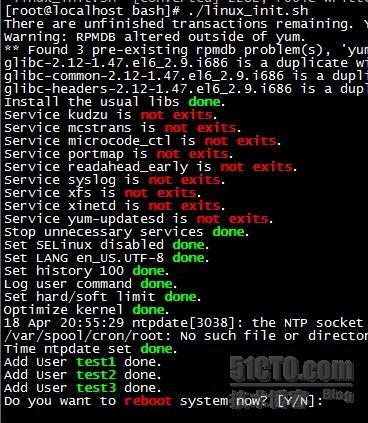
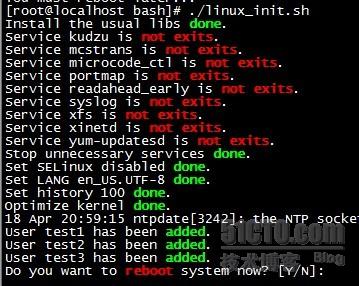
新增的运维账号首次登陆需修改密码,默认密码在脚本中修改:
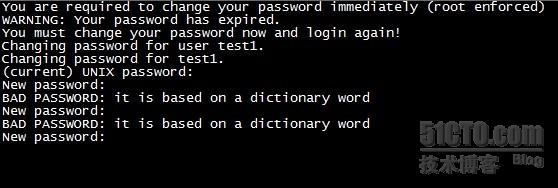
可以查看所有登陆用户的运行命令:

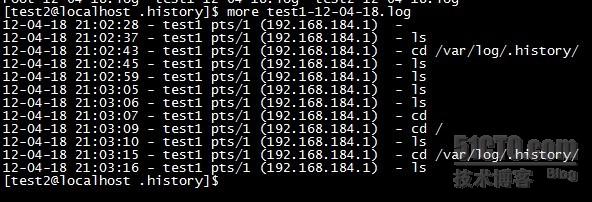
除了root(或者用户有sudo权限)其他用户都无权限修改或删除命令日志文件
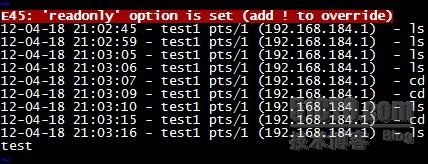

脚本源代码:
【文章原创作者:武汉网站制作公司 http://www.wh5w.com提供,感恩】
